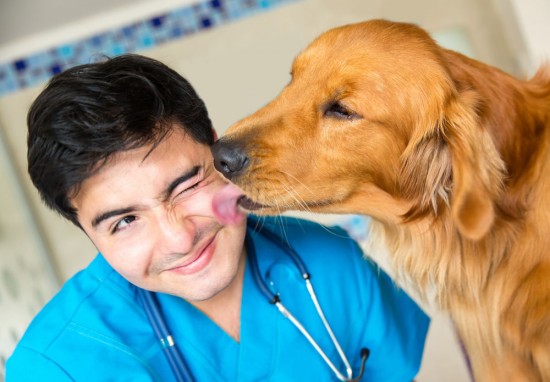

Pancreatitis in dogs or “canine pancreatitis” refers to a condition that leads to the inflammation of the pancreas, a glandular organ that produces important hormones including insulin and glucagon, and other components that help to aid with the breakdown of food and with general digestion. Pancreatitis in dogs can be either acute or chronic, meaning that it may present itself either with a sudden onset with no prior symptoms, or can develop slowly over time and flare up repeatedly as a recurrent condition. Canine pancreatitis, while not massively prevalent within the canine population, is nevertheless a relatively common condition that can affect dogs, and can range in severity from quite mild to serious.
Do you know the signs and symptoms of canine pancreatitis, how to minimise the chances of your dog contracting the condition, and how it can be treated? Read on to learn more.
Pancreatitis can flare up without warning, and the exact causes for the condition and the full range of potential risk factors are not fully understood. Nevertheless, there are a range of elevated risk factors that are considered to contribute to the development of the condition:
Pancreatitis in dogs may be chronic or acute in onset, although the acute form of the condition is more common for a first attack, and symptoms may develop quickly in affected animals. Some of the main signs of pancreatitis to be on the lookout for, particularly if your dog has a heightened risk of contracting the disease due to one of the factors described above include:
If you suspect that your dog is suffering from pancreatitis or is displaying a combination of some of the above symptoms, it is important to seek veterinary treatment and a formal diagnosis for them as soon as possible. Diagnosis takes the form of physical examination and clinical evaluation, taking into account your pet’s general health and history. If your vet considers that pancreatitis may be likely, they will then take a blood sample for analysis of the digestive enzymes present within the blood and white blood cells to reach a definitive diagnosis.
The first step in treating pancreatitis in dogs is to place the dog on an enforced fast, removing access to food and water to immediately reduce the strain placed on the pancreas. This is usually performed on an inpatient basis, as IV fluid therapy is required in order to avoid dehydration. This enforced fast may take place for anything from two to five days, and understandably, will make your dog rather unhappy. Various medications may also be administered in order to treat infections of the pancreas or reduce inflammation or pain, and ongoing monitoring of the condition is vital in order to establish how your dog is coping and assess the efficacy or otherwise of the treatment methods used.
Once a dog has contracted pancreatitis, they will become more prone to developing the condition in the future, so it is important to monitor your dog carefully after successful treatment so that you will be able to spot any potential recurrence of the condition. Feeding a good, nutritionally complete diet that is not high in fat can help to keep any future flare-ups under control, and can help to prevent recurrences of the condition. Your vet may recommend that you feed a special veterinary diet to your dog that is specially designed to meet the nutritional needs of dogs that are prone to pancreatitis, and you should discuss this with your vet carefully in order to establish the appropriate future feeding regime your dog will require.
Pancreatitis is usually a manageable condition, although it does tend to flare up and recur periodically throughout the life of an affected dog. Up to 60% of dogs that are treated for the condition once will go on to suffer from future flare-ups over the course of the rest of their lives, although this does of course vary from case to case.
Try to minimise the risk factors for your dog contracting pancreatitis in the first place, and always seek veterinary advice promptly if you suspect that something is amiss, to give your dog the best chances of recovery from the condition and to help to keep them healthy and well for life.
 Pet Insurance : Five Ways To Keep Your Policy Cost Down Without Compromising On Coverage
Pet Insurance : F
Pet Insurance : Five Ways To Keep Your Policy Cost Down Without Compromising On Coverage
Pet Insurance : F
 Re-training An Alpha Dog
Re-training An Al
Re-training An Alpha Dog
Re-training An Al
 Diverticulitis In Dogs
Diverticulitis In
Diverticulitis In Dogs
Diverticulitis In
 The African Pygmy Hedgehog
The African Pygmy
The African Pygmy Hedgehog
The African Pygmy
 Some Horse And Pony Basics - Colours, Types And Markings
Some Horse And Po
Some Horse And Pony Basics - Colours, Types And Markings
Some Horse And Po
Copyright © 2005-2016 Pet Information All Rights Reserved
Contact us: www162date@outlook.com